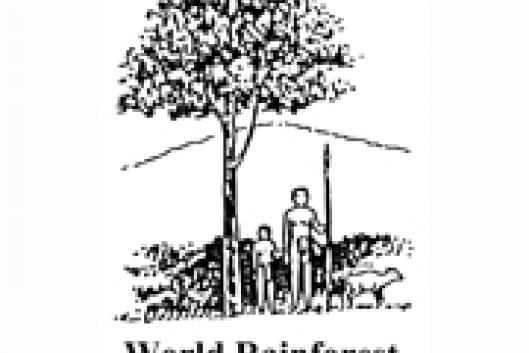By the World Rainforest Movement.
August 9 has been declared as International Day of the World's Indigenous People. On this date, the WRM wishes to express its full support to the numerous indigenous peoples around the world that are struggling for the recognition of their rights.
On this day, we wish to specifically focus on the rights of those indigenous peoples that have chosen to live in voluntary isolation. In a world characterized by information, there are issues that have been made so invisible that the great majority of people do not even know that they exist. Such is the case of these peoples, who inhabit the forests of South America, Africa and Asia. Few people are aware that some indigenous peoples have not yet been contacted by the predominating society and in other cases, have resisted integrating it in spite – or as a result of – having been contacted at some time in history.
The very existence of these peoples is seriously threatened by the destructive advance of “development.” Roads penetrating into the forests to extract timber, oil, minerals or to promote land settlement for agriculture and cattle-raising, can be labelled “roads of death” for these peoples. They bring unknown diseases their bodies are unready for, the destruction of the forests that provide for their livelihoods, pollution of the waters that they drink, where they bathe and fish, confrontations with those who intend to take over their territory, the death of their millenary cultures.
It is important to emphasize that these peoples were never asked if they wanted to be Brazilians or Ecuadorians or Peruvians or Congolese or Cameroonian or Indonesian or Malaysian. Each government (colonial or national) simply drew up a map and determined that all the territories included within its frontiers “belonged” to the corresponding country or colony. No matter that these peoples had been living on these territories before the very creation of national states or foreign colonization. They were in fact “nationalized.”
These peoples are in total inferiority of conditions to resist the devastating advance of predominant society. For this reason, all of us who believe in justice have the obligation to provide them, under many forms, with the support that they need – although they do not ask for it – to defend their rights and to stop the silent and invisible genocide they are being subjected to.
In this respect, the first thing we can do is inform the world that they exist, as an initial step towards the objective of gathering determination in defence of their right to live in their territories in the way they themselves decide, including the right to remain outside a society they have no wish to belong to.
In addition to this, we must do everything possible to protect their territories from outside invasion linked to activities such as logging, mining, oil exploitation and settlement. In the first place, this implies legal recognition of their rights by the State and strict compliance with legal provisions vis-à-vis possible non-authorized invasion. It also implies that the State explicitly excludes these territories from its development programmes.
In fact, we should not be surprised that there are peoples who do not want to integrate a society such as the one we live in, that thrusts millions of people into poverty and hunger and that destroys everything it touches (climate, forests, grasslands, wetlands, soil, air). These peoples are neither poor nor ignorant. They are different and are showing enormous wisdom in wanting to maintain their isolation. Let us help them to live in their way until the day comes when they freely decide to integrate the predominant society – if ever they decide to do so.
